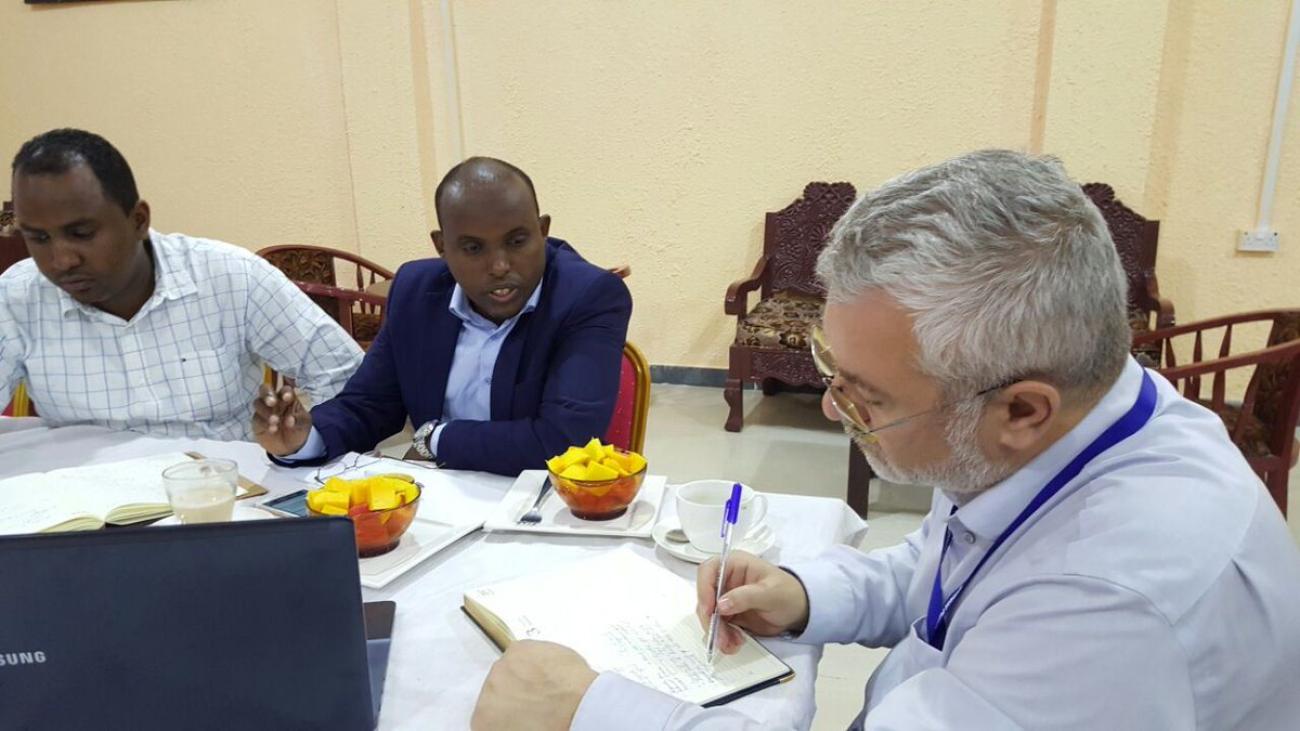New Local Investment Finance Initiative in Somalia

Somalia is one of the striking cases of rapid urbanization in the East African context and beyond.
Despite continued insecurity and limited economic opportunities, it is urbanizing at a high rate of 4-6% p.a. The share of urban population in Somalia is one of the highest in the region, 42% in total and even higher in some states, such as Somaliland where it reaches 52.8%.
It is forecasted that by 2030 nearly 90% of Somalis will live in urban or semi-urban settlements. Somalia has moved from a predominately pastoral society to a semi-urban and urban one within three generations, and from an overall livestock-export dominated economy towards a mixed one with urban services in addition to livestock. Hence, urbanization is both a driver of national growth and development and a leading factor of economic structural transformation. Urbanization in Somalia is accelerated by high natural population growth, rural-urban migration and massive displacement of people from their traditional settlements.
To respond to this challenge, UNCDF in partnership with UN-Habitat has designed an innovative project called Local Investment Finance for Transformation in Urban Patterns (LIFT UP) to improve access to, and utilization of, public and private finance for inclusive and sustainable local development in Somali municipalities. LIFT UP intends to help municipal authorities develop their capacity to plan, finance and implement urban development projects by attacking four challenges:
- Lack of spatial development strategies aligned with community priorities to enable the city patterns that foster local economic growth and development.
- Poor capital investment planning and the resulting inefficiencies in the allocation of the public budget.
- Inadequate project development capacity, which limits the ability of local governments to attract private sector participation, including restricted access to domestic capital markets.
- Weak public financial management systems that have a negative impact on the financial positions and the creditworthiness of municipalities as well as inadequate skills in managing market-based financial instruments.
UNCDF and UN-Habitat are already working together under the Joint Programme on Local Governance and Decentralized Service Delivery in Somalia. Both partners want to utilize the synergy effects of their combined comparative advantage: UNCDF from its involvement in the stabilisation of Local Development Finance mechanism, and UN-Habitat from its long-time engagement in municipal finance mobilization, community planning and housing. There are also a number of overlapping areas where the two partners can successfully cooperate.
The design of the program was inspired by a direct call from the City of Mogadishu to UNCDF to facilitate access to capital finance for municipal infrastructure, including through the issuance of a diaspora bond. Hence, it was important for UNCDF to hear from the City of Mogadishu if the proposed design met their expectations. A consultative session with leaders of the City of Mogadishu, Mr. Ismail Moallim Abdi, First Deputy Governor and Mayor for Administration and Finance and Mr. Mahad Yalahow, Director of Taxation, confirmed that the project correctly addresses the most problematic areas of municipal finance that constrain the municipality’s access to capital finance and that the proposed solutions are likely to succeed.
A number of innovative solutions were identified as potentially highly beneficial, such as the development of a city-wide urban profile to underpin a capital investment plan and deployment of a mobile payment platform for municipal taxes and fees. The representatives of the City of Mogadishu also emphasized the value of the project approach for capital cities of the new federal states which are still in the process of formation. The consultative session resulted in a joint resource mobilization action plan agreed between UNCDF, UN-Habitat and the City of Mogadishu.
The resource mobilization action plan will be implemented in close coordination with the federal Ministry of Internal and Federal Affairs and the new state governments. Subject to the availability of resources, the first phase of LIFT UP will cover the City of Mogadishu and 3-4 state capitals.




